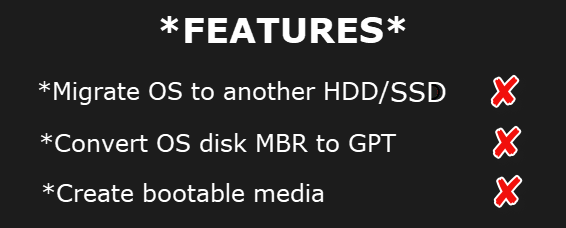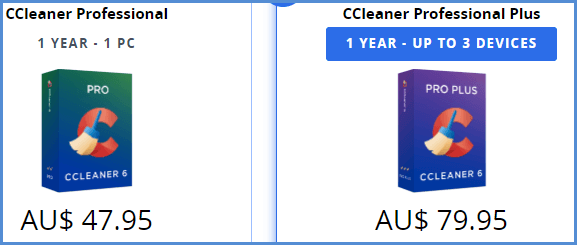Very recently, we published an article discussing the Best Free Partition Managers, and during my research for that article, I noticed a somewhat alarming pattern, which, when thinking about it later, I realized was something I’d come across previously.
This applies to software that is part of a freemium model – that is, software with both free and Premium versions available.
The Missing Features Scam
What software vendors are doing is listing Premium features in the free version’s interface and sometimes also in the free version’s description. Then, when the user clicks on one of those advanced features in the free version, instead of the feature initiating, a message pops up informing the user that the feature is only available in the Premium version, or that there is some crippling limitation in the free version that can only be eliminated by purchasing the Premium version.
And, of course, this generally involves the most desirable/advanced features.
I’ve long advocated that many free versions are used as a tool by vendors to encourage users to upgrade to the Premium version, often including persistent nags to do so. Now, following my recent experience, I think it’s fair to also include these “ghost” features in the sneaky tactics department.
The Subscription Model Ripoff
Lifetime licenses for Premium/Pro software have become as scarce as rocking horse manure, with annual subscriptions fast becoming the norm, and even monthly subscriptions in some cases.
Very few types of software require ongoing development, with the obvious exception being security-related software, which does require ongoing research and development in order to keep up with the ever-changing threat landscape.
And, with the advent of Windows 10 and 11, even compatibility issues are no longer a critical consideration for developers. With annual subscriptions, the user never actually owns the software, but rather they are leasing it year by year.
I can appreciate that software vendors need to make a profit, and lifetime licenses might cause the occasional drop-off in revenue, but there has to be a more equitable system. In my opinion, 3- 5 year licenses at a reasonable price would be fair for both vendors and consumers alike.
I do not own any software that requires an annual subscription; it’s either lifetime or free for me, but I would certainly consider a 3- 5 year license at a reasonable price.
Software Monopolies – Who Owns What
One only has to look at Avast’s history to understand the complexities of acquisitions and the confusion surrounding who owns what:
- 1995: Avast produced the first antivirus software for Windows
- 2016: Avast acquired AVG, arguably its fiercest competitor
- 2017: Avast acquired Piriform, the developer of CCleaner
- 2021: Avast was acquired by Norton LifeLock, which then changed its name to Gen Digital
This is just one example of many similar complex ownership stories. We also have situations where parent companies are selling very similar versions of software under multiple different company names, seemingly in direct competition with themselves.
To me, this smacks of anti-competition. Let us know your thoughts via the comments.
—



